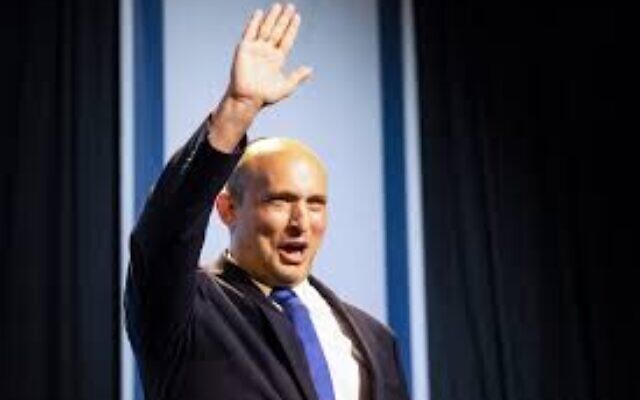Israeli Government Reaches 100 Day Benchmark
Israel’s current coalition government has been praised for providing stability at home. But a Nov. 4 deadline to pass the state budget still looms.
Pundits and political analysts typically take stock of new governments as they approach 100 days in office. For Israel, that date was Oct. 11.
For some observers, reaching that milestone was an accomplishment in and of itself. Israel’s current coalition government is the most diverse of any in the country’s 73-year history. It includes center-left parties, center-right parties and, for the first time ever, an Arab Islamic party. The coalition was cobbled together by current Foreign Minister Yair Lapid, head of the Yesh Atid Party, the largest in the coalition. But he agreed to delay his step up to the premiership until Aug. 23, 2023, allowing Naftali Bennett – the leader of a much smaller party – to become the first prime minister.
The various parties disagree on many issues but came together on their shared desire to replace former Prime Minister Benjamin Netanyahu, the country’s longest serving prime minister. The question has always been whether that goal alone could hold the coalition together.
It’s still unclear.

However, more important than reaching the 100 days is the upcoming Nov. 4 deadline to pass a biennial state budget – the country’s first since 2018 and the reason previous governments failed, leading to successive elections. If Israel’s legislature, or Knesset, fails to meet that deadline, this government will fail, too, and snap elections will be called.
More than one observer gives credit to the government just for its continued existence. “Basically, it’s an accomplishment that the government has provided some stability at home,” said Michael Jacobs, communications consultant for the Center for Israel Education in Atlanta. “It was never likely to do much more than see Israel through a transition to whomever and whatever will come next. I think Bennett and Lapid together have done a solid job of keeping their government focused on issues they can tackle without splitting their fragile coalition, and that was always the most likely positive outcome for them. It’s unfair and unwise to expect anything transformative from them.”
Jacobs also credits the government with doing “a decent job of re-establishing support for Israel as a bipartisan issue. This government has shown it cares about Israel’s two-way relationship with the Diaspora and has made a promising start in strengthening those ties. But until and unless the government passes a budget, none of that will have a lasting impact.”

Recently, the president of Jerusalem-based Israel Democracy Institute, Yohanan Plesner, wrote in the Times of Israel that “one of the government’s main achievements has been to restore stability and to reduce the levels of incitement and hatred in public discourse.”
The latest IDI sponsored survey indicates that might not be enough for the average Israeli voter. In early October, the IDI’s Viterbi Family Center for Public Opinion and Policy Research published its most recent Israeli Voice Index, indicating what the Israeli public most wants from the current government.
That survey found that 33 percent of Israelis want the Bennett-Lapid government to make stabilizing the economy its top priority. Another 24 percent want the government to reduce the threat of the COVID pandemic. Those stated priorities weren’t surprising, just as they were connected. Unlike in the U.S., the Israeli economy virtually shut down more than once during the waves of infections, hospitalizations and death, leading to skyrocketing unemployment that has not been significantly reduced, unlike the COVID numbers.
According to Jacobs, the new government “deserves credit for quickly committing to booster shots in response to the delta variant and the weakening immune response among the COVID vaccinated after six months.”
As far as the importance of measuring a government by its first 100 days, Jacobs contended that it “means nothing in historical terms, especially for the first prime minister after someone who held the office for 12 uninterrupted years.”
- Israel news
- News
- Jan Jaben-Eilon
- Israel
- Israel Democracy Institute
- Yohanan Plesner
- Government
- Arab Islamic party
- Foreign Minister Yair Lapid
- Yesh Atid Party
- naftali bennett
- Prime Minister Benjamin Netanyahu
- Knesset
- Diaspora
- Michael Jacobs
- coalition
- bipartisan
- Times of Israel
- Viterbi Family Center for Public Opinion and Policy Research
- COVID pandemic
- Economy
- infections
- hospitalizations
- Death
- Unemployment
- ShutDown
- Delta variant
- immune response
- COVID vaccinated
- American Israel Educational Institute




comments